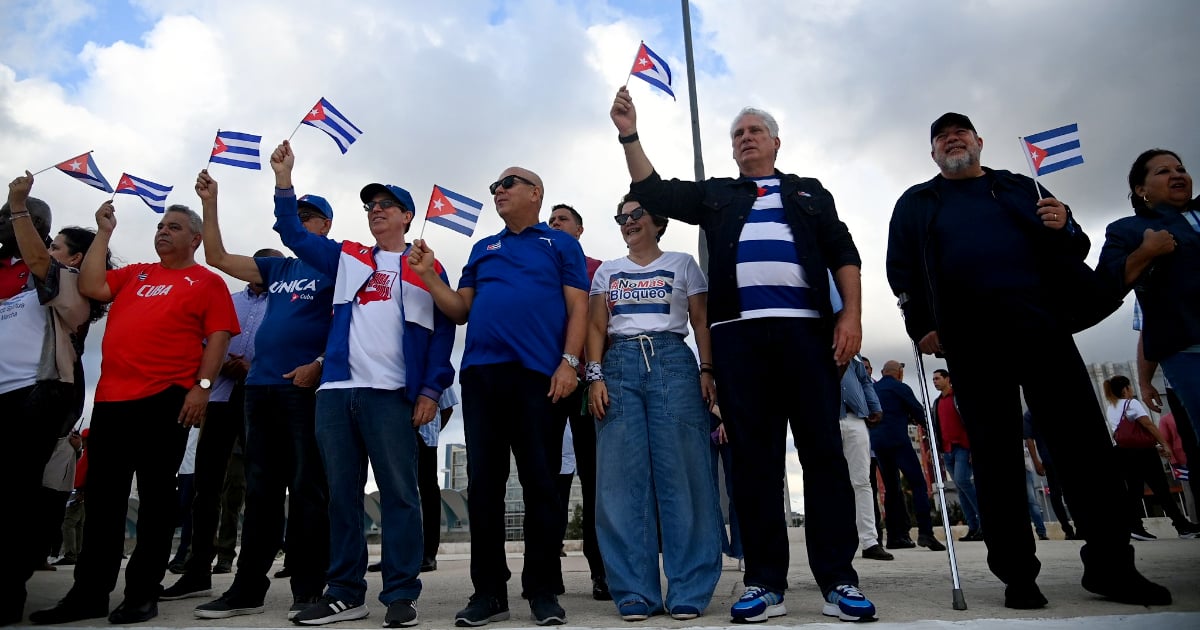The Cuban government reacted in a predictable and confrontational manner following its reinstatement on the U.S. list of state sponsors of terrorism. This decision, which Havana has labeled an "imperialist attack," fails to acknowledge the current realities. The official statement, filled with propagandistic rhetoric and manipulations, focuses on portraying the Cuban government as a victim while painting the United States as the aggressor, conveniently omitting any self-reflection on its repressive practices and historical support for extremist groups worldwide.
Cuba's Foreign Minister, Bruno Rodríguez Parrilla, took to Twitter to denounce the U.S. decision, claiming that "nothing justifies" it and that it is "based on lies." Nevertheless, the official narrative is contradicted by reality, as the regime maintains close ties with terrorist organizations and authoritarian governments like Russia, Iran, North Korea, Nicaragua, and Venezuela, raising international concerns.
In its official statement, the Cuban government continued to blame Washington for all the island's issues, from the economic crisis to the largest mass exodus of citizens in recent history. However, the regime's own policies, marked by repression, lack of freedoms, and economic inefficiency, are the true causes of the declining quality of life in Cuba.
The document released by the Ministry of Foreign Affairs (MINREX) resorts to stale arguments, claiming that U.S. "blockade and aggression" aim to destroy the revolution, while ignoring independent reports that highlight corruption and lack of transparency in government management.
In this context, Cuban civil society is increasingly aware of the role of GAESA (Grupo de Administración Empresarial S.A.), a conglomerate controlling over 70% of the dollarized economy, acting with impunity against Cubans. This extends "clientelism," corruption, and the plundering of the country's resources by an "extractive elite," moving towards establishing an oligarchic system with growing inequalities, as prescribed by Moscow's advisors.
To add insult to injury, the Cuban regime mentioned the recent December 20 march along Havana's Malecón in its statement as evidence of popular support for the over 60-year project of domination known as the "revolution." Is this controlled mobilization by the authorities, devoid of citizen spontaneity, the regime's claim to legitimacy?
Cuba's return to the U.S. blacklist is a direct consequence of its history of supporting destabilizing movements in the region and aligning with powers that challenge the world order promoted by Western democracies. The totalitarian regime's narrative, which seeks to place all responsibility on Washington, fails to hide the growing internal discontent and the deteriorating humanitarian situation on the island.
While the regime insists on its resistance discourse, the reality reveals a Cuba plunged into the worst crisis of its recent history, with a population desperate to escape and an economy on the brink of collapse. The real assault does not come from outside, but from the ruling elite itself, which persists in its policy of repression and misinformation.
Understanding Cuba's Political Situation
Why was Cuba placed back on the U.S. list of state sponsors of terrorism?
Cuba was reinstated on the list due to its continued support for terrorist organizations and alliances with authoritarian regimes, which raise significant international concerns.
How does GAESA influence Cuba's economy?
GAESA, a conglomerate controlling more than 70% of the economy, plays a major role by perpetuating corruption and resource exploitation, leading to increased societal inequalities.
What are the real causes of Cuba's economic crisis?
The economic crisis is primarily due to the regime's repressive policies, lack of freedoms, and inefficient economic management, not solely external factors.
